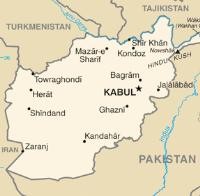After the Sept. 16 Blackwater scandal, which drew unprecedented attention to the role played by private security contractors (PSCs) in Iraq, these firms have increasingly come under scrutiny in other theaters of war, such as Afghanistan. But while efforts in Afghanistan to rein in PSCs seem to parallel those in Iraq, they are driven by different dynamics -- and have very different implications. Earlier this month, the Afghan parliament, emboldened by the Iraq legislature's attempt to assert jurisdiction over contractors, drafted a law that could curb operations by private security contractors. Then last week Afghanistan's Ministry of the Interior (MOI) went a step further, shutting down four Afghan private security firms. These steps sound similar to those taken the Iraq government, but there are important differences. In Iraq, virtually all private security contractors are international companies with Western employees. In Afghanistan, many private security groups are indigenous, often under the control of a single faction, and even the large international firms operating there rely upon local militiamen for much of their manpower.
Private Military Contractors also Creating Problems in Afghanistan

